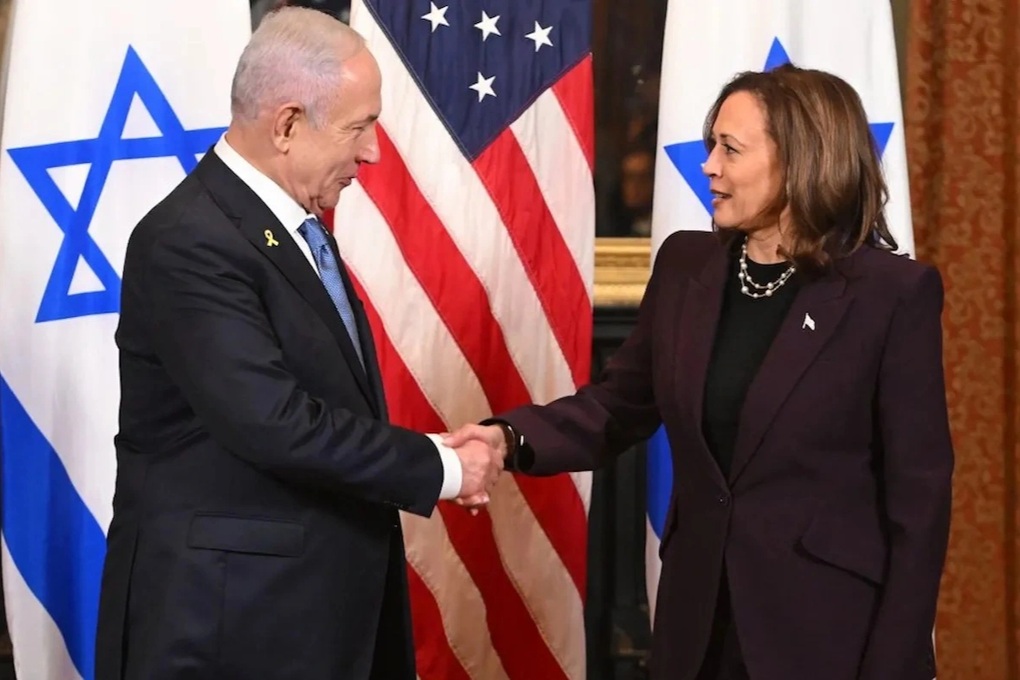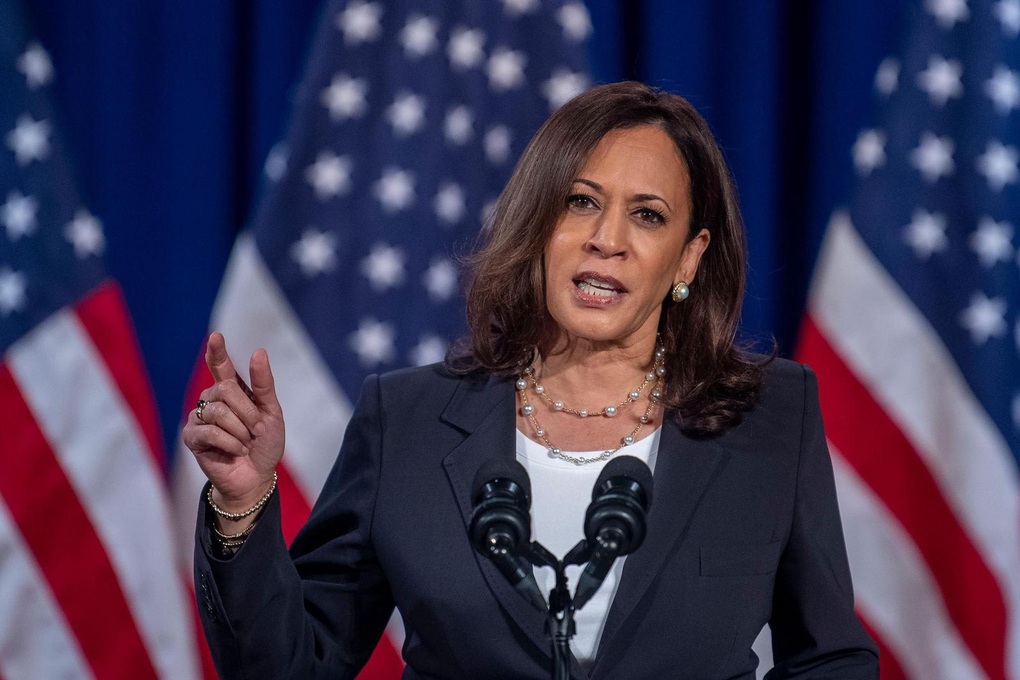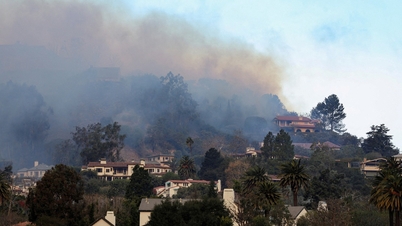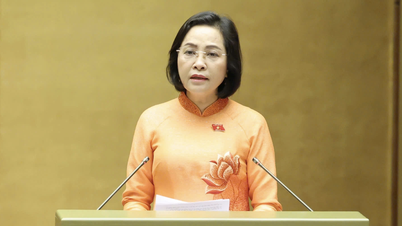(Dan Tri) - US Democratic presidential candidate Kamala Harris is pursuing a tougher stance on the Israel issue. This has helped her regain support from important constituencies.

US Vice President Kamala Harris (right) and Israeli Prime Minister Benjamin Netanyahu (Photo: EPA).
As the Democratic National Convention got underway on August 19, a strange development occurred in Israel. In Tel Aviv, US Secretary of State Antony Blinken said Israel had accepted a “mediate proposal” for a ceasefire. He stressed that the situation now depended on whether Hamas agreed. However, contrary to that statement, officials from both Israel and Hamas said there had been no progress in the peace talks in Qatar. This was not surprising, given that just three weeks earlier, Hamas negotiator and political leader Ismail Haniyeh had been assassinated in Tehran. Hamas has so far blamed Israel. Israeli Prime Minister Benjamin Netanyahu reportedly rejected his negotiators’ offer to make concessions. Months later, they said a ceasefire was impossible as Netanyahu persisted in his stance. So, contrary to Secretary of State Blinken's claim that a deal was within reach, Prime Minister Netanyahu told the families of hostages held by Hamas that he was "not sure there would be a deal." The Hostage Family Forum commented: "The Prime Minister's remarks undermined the hostage exchange agreement." US President Joe Biden leads a Democratic Party that has long been deeply divided over the conflict in Gaza. However, he is a staunch supporter of Israel. Immediately after Hamas' attack on Israel on October 7, 2023, Mr. Biden traveled to Tel Aviv to show solidarity with the Netanyahu administration and made a commitment: "As long as America exists, we will never leave you alone." Overcoming the Gaza issue Ms. Kamala Harris, the Democratic presidential candidate, has taken a different approach to the Gaza issue as well as the future of Israel and Palestine. Notably, she has been more direct in her demand for a ceasefire. But it remains to be seen how she will navigate the divisions within her party over the issue as she campaigns for the White House. Before Biden announced he was ending his presidential bid and nominated Harris to replace him in July, many analysts said the Israel-Gaza issue could sway Democrats in the election. In the battleground state of Michigan, the official number of Arab voters is 211,405, but some estimates put the number as high as 500,000. Their votes could be decisive given the number of votes Trump and Biden have had in the past. In 2016, Trump received fewer than 11,000 votes. In 2020, Biden received just over 150,000 votes. Since joining the race, Harris has worked to appeal to this group. In just a few days, the Democrat has gone from trailing Republican Donald Trump by 3 to 7 points to leading him in Michigan polls by 3 to 4 points. That shift shows no signs of reversing. Outside Michigan, Harris has energized younger voters who had previously rejected Biden’s stance on the Middle East. That may be partly due to Harris’s divergent views on the issue. This spring, despite no apparent move to end Washington’s support for Israel, Harris began to emphasize the well-being of the people of Gaza, who she said must be protected from Israeli attacks and the humanitarian crisis they have caused. In early April, Harris commented on the phone call between Biden and Netanyahu: "We will make sure that Israel is never left without the ability to defend itself. But if they don't change their approach to solving the problem, it's very possible that we will change our approach." During a campaign rally in Arizona on August 9, Harris responded to pro-Palestinian protesters by stopping her speech and addressing their concerns directly. "I've been clear, now is the time to reach a ceasefire and implement a hostage deal," she stressed. The reality of the competition
US Vice President Kamala Harris (Photo: AFP).
Harris’s position is not convincing enough for some pro-Palestinian activists. But for the Democratic campaign, most potential voters in the presidential election will have priorities other than Gaza. The pro-Palestinian protesters are really just a ripple effect that is hindering Democratic unity. So if the race is changing, it doesn’t seem to be because of Gaza. On the contrary, Harris and her vice presidential running mate Tim Walz are making small gains in five swing states. What’s more, Harris’s campaign is doing better in other states where Biden once trailed Trump. Harris has erased an eight-point lead and even taken the lead in Arizona and North Carolina. She has erased Trump’s advantage in Nevada and has narrowed the gap to a point or two in Georgia. At the Democratic National Convention last week, Harris encouraged the crowd: “This November, we will come together and declare: we are moving forward.” The next day, in Gaza, an Israeli airstrike on a school that was sheltering civilians killed 12 people. While the faint hope of a “ceasefire” persists, there are three realities to consider: First, if the war ends, Netanyahu will face early elections and a trial; second, Harris is likely to win regardless of a ceasefire; third, Gazans will continue to die without a ceasefire.Dantri.com.vn
Source: https://dantri.com.vn/the-gioi/xung-dot-o-gaza-co-the-anh-huong-the-nao-den-bau-cu-tong-thong-my-20240826152338771.htm


![[Photo] Prime Minister Pham Minh Chinh starts construction of vital highway through Thai Binh and Nam Dinh](https://vphoto.vietnam.vn/thumb/1200x675/vietnam/resource/IMAGE/2025/5/12/52d98584ccea4c8dbf7c7f7484433af5)

![[Photo] Buddha's Birthday 2025: Honoring the message of love, wisdom, and tolerance](https://vphoto.vietnam.vn/thumb/1200x675/vietnam/resource/IMAGE/2025/5/12/8cd2a70beb264374b41fc5d36add6c3d)


























![[Photo] General Secretary To Lam meets and expresses gratitude to Vietnam's Belarusian friends](https://vphoto.vietnam.vn/thumb/1200x675/vietnam/resource/IMAGE/2025/5/11/c515ee2054c54a87aa8a7cb520f2fa6e)































































Comment (0)